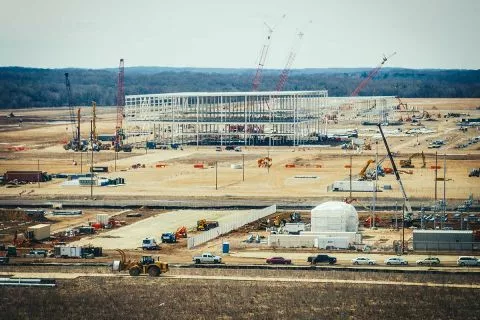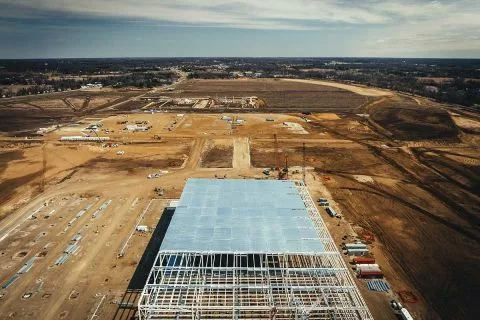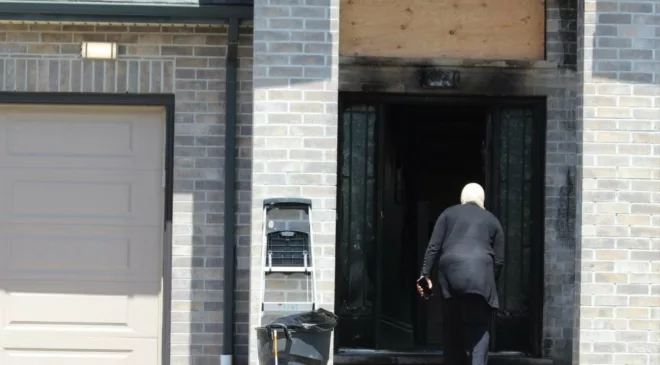Among the barriers to growth: Higher car prices and “range anxiety” caused by the slow rollout of public charging stations in Michigan and elsewhere.
Automakers such as Ford are losing $100,000 or more on each EV sold, regardless of the number of sales.
Advocates anticipate sales of EVs will jump in the next few years, especially with new emission rules under the Biden administration that attempt to transform the auto industry to mostly electric or hybrid vehicles by 2032.
Michigan’s incentive deals are unique because state officials had to act with urgency after Ford in 2021 announced it was building $11.4 billion in EV campuses in Kentucky and Tennessee, said Messer of the Michigan Economic Development Corp.
In a bipartisan vote, lawmakers in 2022 created Whitmer’s Strategic Outreach and Attraction Reserve program, known as SOAR, to lure megaprojects.
Instead of Michigan’s traditional economic development guidelines, Messer’s agency created individual metrics for companies that received the SOAR funding.
As a result, instead of waiting for funding once they created jobs, companies could get taxpayer money by meeting milestones like securing private funding for projects, buying machinery or setting up factories.
The rules changed because automakers demanded flexibility amid the historic transition to EVs — and Michigan needed to remain competitive with others states vying for the deals, Messer said.
Manufacturers wanted to save money during the shift, because most are still losing money on every EV they sell. Now, many realize “the demand signal was probably overly aggressive,” and aren’t moving as fast to building EV facilities as initially projected, Messer said.
McKie, the MDEC spokesperson, said Michigan had to spend money before jobs were created in order to attract big projects.
“We have lost out on investment opportunities who specifically cited the site was not build-ready,” he said.
“If the state didn’t compete for these projects, with the tools available to us, they would have gone elsewhere, and we’d have missed out on all the impact of these capital investments and job creation.”
Michigan isn’t alone in questioning how long it will take to make their “tremendous subsidies” for EV battery companies worth it, Marick Masters, a business professor at Wayne State University, told Bridge.
“The answer is that it’s going to take longer than we thought,” Masters told Bridge of the nation’s EV slowdown that’s mirrored around the globe.
“All of these states are going to be looking at their investments in the future going forward.”
Market-driven pace
Michigan’s battery investments would give automakers far more capacity than they currently need for EVs.
Ultium Cells Delta Township will be GM’s third battery plant, in addition to ones in Lordstown, Ohio, and Spring Hill, Tennessee.
At full capacity, the plants would be able to make batteries for at least 1.3 million EVs a year.
Last year, GM sold 2.6 million cars in the United States.
Just 75,000 were EVs.
Automakers are making decisions about the future during a period of volatility and a “massive amount of uncertainty globally around (internal combustion engine) transitions,” Jonathan Smith, head of Michigan’s Community & Worker Economic Transition Office, told Bridge.
“That’s not because of policy or politics. It’s because these are complicated markets,” Smith said.
“It should not be a surprise that we may see some shifts in (project) timelines.”
EV sales are expected to increase to 10% of new car sales this year, so long as buyer incentives and tax credits for manufacturers remain, Keating said.
Economic development officials say they moved quickly to help Ford and GM because they are two of Michigan’s largest businesses and sales drops affect the state’s overall economy.
When automakers need to reduce EV inventory to meet lower demand, “they get pretty worried,” Masters said. “And so they have to make changes in employment and put pauses on things, and they’re going to shift their product mix.”
That’s what happened last fall in Marshall, where Ford Motor Co. halted its $3.5 billion battery factory on a new, state-funded megasite, where the automaker expected to hire 2,500 workers.





